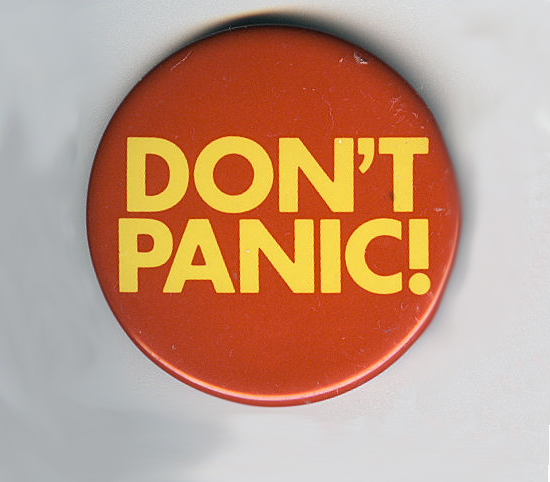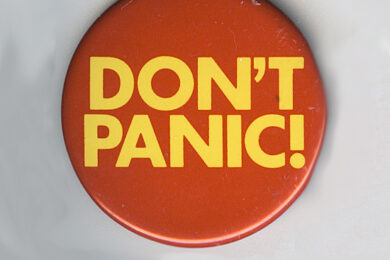Social media is often like an Ouroboros, the ancient symbol of a snake eating its own tail that’s often used to denote infinity or the idea of eternal recurrence. You’ll forever find on social networks a corner devoted to bemoaning social media, discussion that in turn becomes fuel for further chatter…on social networks.
It’s a tale as old as recent time or, if you like, a case of ‘if you build it they will whinge’. In recent weeks, though, the torches have been lit by a larger mob than usual. The focus of everyone’s ire is once again Facebook – which since its roll out of new features like timeline over the past 12 months and the development of new ad units as part of its monetisation strategy post IPO, has been the subject of a flurry of complaints. Many of them revolve around the idea that Facebook has been intentionally limiting visibility of your posts to your friends or page fans in order to make you shell out hard earned money if you want your entire network to see your updates. If that mouthful hasn’t fully sunk in, think about it like this: first time was free, now you pay.
This idea has caused a bit of a ruckus since page admins first started catching whiff of it last spring with the launch of promoted posts (a feature that allows you to pay money to promote your posts to more of your fans). The complaints went quiet over the summer and then picked up speed again with the recent launch of promoted posts for personal profiles and a documented tweaking of the newsfeed on September 20th that’s had an impact on newsfeed visibility for a number of pages. All of this has proven too much for many, leading to <a href="http://observer.com/2012/09/broken-on-purpose “ target="out">this New York Observer piece arguing that Facebook has intentionally broken itself in order to make money off its users. This now viral post from the Dangerous Minds blog takes the idea even further and offers a breakdown of what it would cost them per year if they paid to promote every post on their Facebook page.
So, is Facebook now looking to charge you for something you used to get for free?
No.
The main feature causing the bulk of this confusion is Edgerank. What’s Edgerank? Sci-fi geeks, think of it as Facebook’s Wintermute. For the rest of you, Edgerank is an algorithm Facebook developed which decides what appears in your newsfeed. That machine driven decision is based on what you interact with on Facebook. Interactions can be with a friend, a family member or a post from a page you liked and interactions are defined as commenting, liking, sharing, tagging or clicking on a link. Basically, it’s anything that makes you move your mouse in Facebook. The more you interact with a person or a page’s posts, the more likely their posts will appear in your feed when you’re logged into Facebook. It’s the reason why your close friends are more likely to pop up in your feed than old acquaintances you’re never in touch with. No interaction with a person or page equals no presence in your newsfeed. It’s a way of ensuring your feed isn’t filled with updates and posts you don’t care about. The main aim here is to protect your user experience. Facebook do occasionally tweak this algorithm in order to finesse and hopefully improve the quality of what appears in your feed. Sometimes they get it right, sometimes it impacts in ways that causes issues for some users – there are ways to fix it and teach Edgerank what you want to see if you’re one of them. The system isn’t perfect but it’s constantly evolving. Imagine what your feed would look like if you saw every single post from every person or page you like appearing in your feed.
Some have assumed or claimed that Edgerank is a recent development that coincided with the launch of promoted posts. That’s not true. This Edgerank piece from Techcrunch appeared in April 2010. Edgerank has been helping decide what appears in your newsfeed for a while. It also means that for a few years now, only a percentage – usually claimed to be around 16% – of your friends or page fans see your posts on Facebook in their newsfeeds. One of the reasons people started complaining about this last Spring is simply because Facebook started to show page admins the reach figures of their posts. The truth is that reach wasn’t reduced; the figures were just suddenly more visible. Also, for anyone claiming, "Yeah, but Twitter lets all of my followers see my tweets" that’s not true. Yes, Twitter’s timeline simply shows you the most recent tweets in chronological order but even they admit that only a small percentage of your followers see each tweet at any given time. The reality is that Facebook and Twitter feeds are not static websites, and they’re not like an email mailing list either. Your feeds are fluid, dynamic streams of constantly moving information. If it helps, think of them as a kind of radio station where you tune in at a time of your choice to hear what’s happening at that specific moment. Depending on the time of day, you’ll see/hear different things from different people.
For those Facebook page admins wondering if the 16% barrier can be broken, the answer is yes. The organic way is to post interesting, unique content that drives people to interact with it. The more they interact with it, the more often they’ll see future posts from you in their newsfeeds. It also means that the greater the interaction, the more likely their friends will see your post content and potentially like your page.
This isn’t revelatory news if you think about it. If you want to build a community around your website, band, musician etc then you need to provide your community members with content they’re interested in. Facebook, like all social networks, was built around the idea of discussion and sharing after all, so again, don’t approach your page like just another email subscription list. If you don’t have strong content and you don’t look to find ways to make it interesting for users within Facebook, then your other option now is to pay to reach more of your fans. It is something that wasn’t available until recently and it’s a new opportunity to reach more people, not a demand to pay for what you once received for free. But even then, it doesn’t fully guarantee maximum visibility in the newsfeed, Facebook requires your promoted post to be compelling and engaging for your target audience, otherwise it will quickly vanish from the newsfeed as well. Which means that even big players with large advertising budgets have to think hard about what they push out, even if they pay. It also means that smaller businesses still have a chance to utilise the platform in meaningful ways.
Depending on your country, normal users can now pay to promote their personal posts to their network of friends too. This has caused fresh outrage in a number of places but a lot of it stems once again from a misunderstanding of Edgerank. Facebook isn’t asking for you to pay so the people you value can see your posts. They’ll still see everything you post. Promoted posts for personal profiles is really designed for big life announcements or if you have something to sell. Essentially, it’s an attempt on Facebook’s part to offer a modern equivalent of the classified ad.
The moral here is that Facebook haven’t stolen your lunch and attempted to sell it back to you. What they are attempting to do while hitting enormous size is to keep the user experience at the core of its platform. Yes, they’ve been busy developing new ways to make money but we’re also talking about money being used to fund a free communication platform used by over 1 billion people. And, they’re attempting to do it in a way that’s trying to put a notion of quality front and centre instead of the giant spamathon that destroyed mySpace in the end. Will they succeed? It’s not clear yet. We should expect more fumbles in the near future and there are questions about what constitutes quality when you reach a size like Facebook. Facebook will keep tweaking and changing of course but what’s key to all of this for publishers, marketers, labels and bands – I’d argue this for all social networks by the way – is that there’s open window right now for quality to shine through and it’s an opportunity for anyone, irrespective of their budgets, to potentially realise. What it requires though is a willingness to look forward instead of the past….that and a big heaping dose of creativity and thinking.
Charles often tweets about this stuff over @cubaghs



